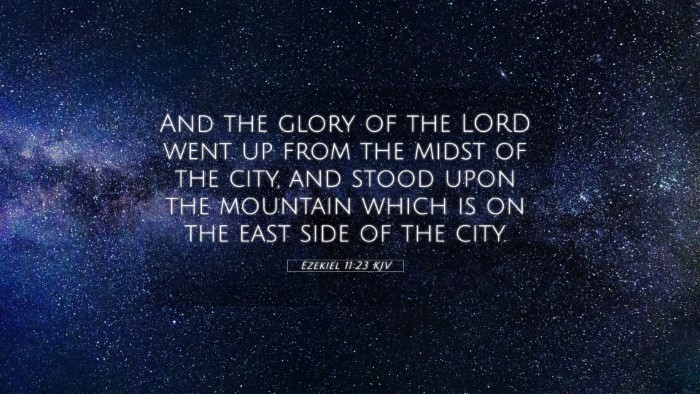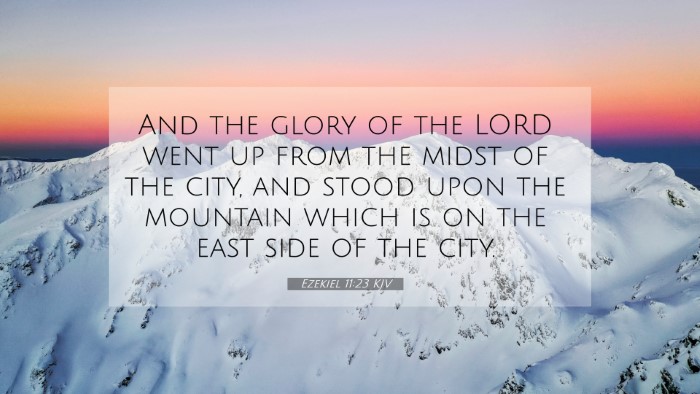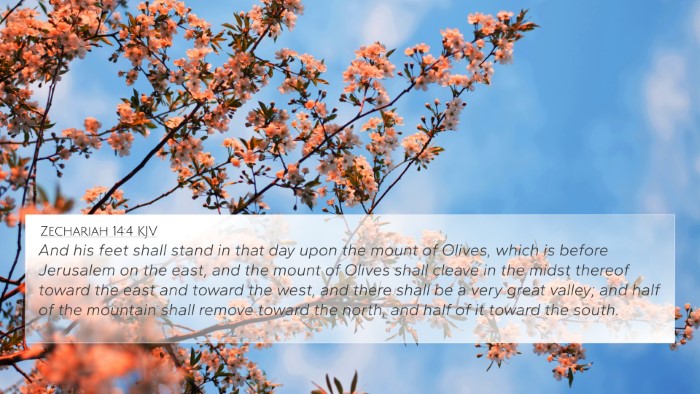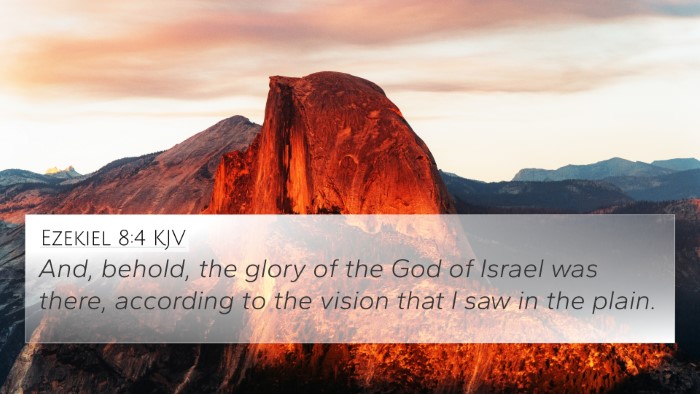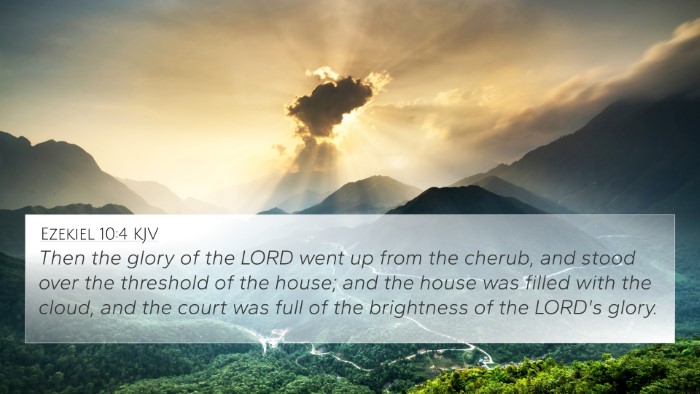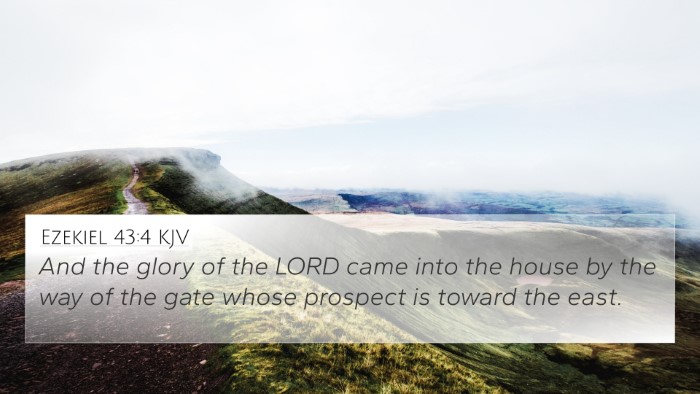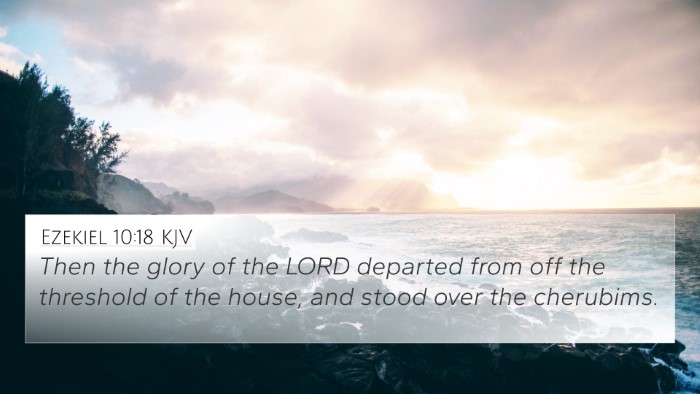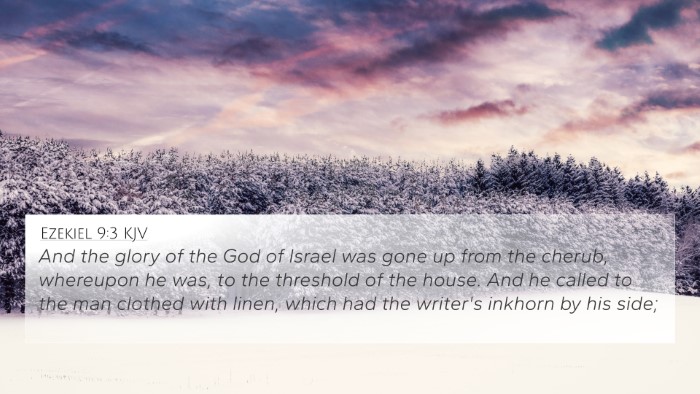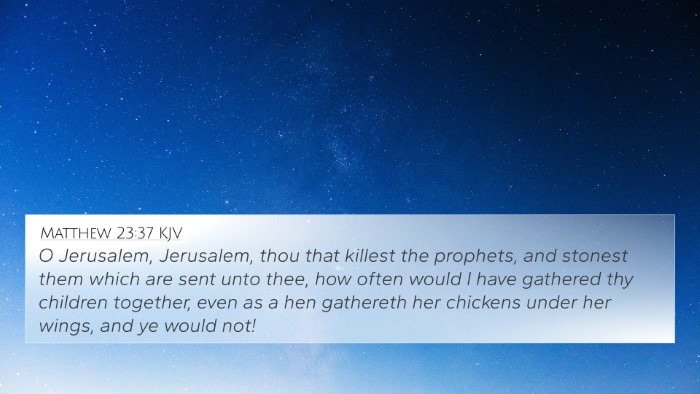Ezekiel 11:23 - Meaning and Analysis
Ezekiel 11:23 states, "And the glory of the Lord went up from the midst of the city and stood upon the mountain, which is on the east side of the city." This verse signifies God’s departure from Jerusalem, a crucial moment reflecting both judgment and future hope for restoration.
Summary of Insights
In analyzing Ezekiel 11:23, we draw on several public domain commentaries to understand its implications thoroughly. Below are the insights from Matthew Henry, Albert Barnes, and Adam Clarke:
-
Matthew Henry:
Henry emphasizes that the departure of God's glory from the temple signifies a severance of His presence due to the wickedness of the people. It serves as a warning of the consequences of sin and the loss of divine favor.
-
Albert Barnes:
Barnes interprets this movement of God's glory as a prophetic act indicating impending destruction. He relates this to God’s future promise of restoration, suggesting that though judgment is pronounced, God’s glory will one day return, highlighting divine mercy.
-
Adam Clarke:
Clarke posits that Ezekiel’s vision of God's glory leaving illustrates God's displeasure with Jerusalem. He connects this departure with the broader narrative of Israel’s rebellion and the eventual hope of restoration post-exile.
Thematic Connections
This verse serves as a pivotal moment in Ezekiel's prophecy, connecting to several biblical themes:
- Judgment Versus Mercy: The departure of God's presence serves as a sign of judgment. Yet, paired with the hope of restoration at a later time, it exemplifies the duality of divine justice and mercy.
- Symbolism of Mountains: The glory standing on the mountain signifies a viewpoint of separation, illustrating both physical and spiritual distance from the people of Jerusalem.
Bible Cross-References
Several verses serve as meaningful cross-references to Ezekiel 11:23, illustrating deeper connections within the Biblical text:
- Ezekiel 10:4: Speaks of God's glory departing from the threshing floor of the temple.
- 1 Kings 8:11: Describes the presence of God filling the temple.
- Isaiah 63:10: Discusses God’s displeasure with His people and the resulting distance.
- Jeremiah 7:12: Reflects on the loss of divine presence in times of disobedience.
- Revelation 21:3: Looks forward to the ultimate restoration of God living among His people.
- Matthew 27:51: Indicates the tearing of the temple veil at Jesus’ death, symbolizing God’s departure from the temple.
- Ephesians 2:13-22: Connects believers’ access to God, emphasizing a new dwelling place through Christ.
Inter-Biblical Dialogues
The implications of this verse also resonate through the narratives found in the New Testament, particularly in regards to Jesus' role in restoring the link between God and humanity.
Understanding Divine Presence
As we study Ezekiel 11:23, consider how God’s presence operates throughout scripture:
- Past: God’s glory was tangible and resided in the temple.
- Present: Through Christ, believers have immediate access to the presence of God.
- Future: In the new heaven and earth, God will dwell with His people permanently.
Practical Reflections
Ezekiel 11:23 encourages readers to reflect on their own relationship with God. Questions might include:
- How do we seek God's presence in our lives today?
- Are there areas of disobedience that might cause a sense of separation from God?
- How can we hold on to the promise of restoration in times of spiritual dryness?
Conclusion
Ultimately, Ezekiel 11:23 serves not just as a historical account of God's glory departing from Jerusalem but as a profound reminder of the complexities of divine presence, judgment, and restoration, interwoven throughout the entirety of scripture. Through rigorous cross-referencing, one can delve into the rich tapestry of biblical themes that inform our understanding of God’s enduring relationship with humanity.

